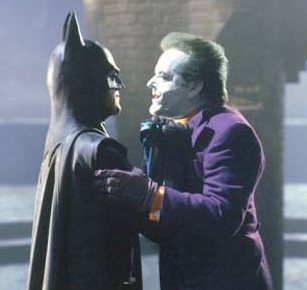The Help (3 1/2 out of 5 stars)


Directed and Written by: Tate Taylor
Starring: Emma Stone, Viola Davis, Octavia Spencer, Bryce Dallas Howard, Allison Janney, Jessica Chastain, and Sissy Spacek
The film starts out with Skeeter (Stone) asking Abileen (Davis) questions about her perspective as the help, and specifically "what it's like to raise white children when your own children are left to be raised by someone else." The film the goes back in time to Skeeter back from college at Ole Miss and playing bridge with her friends Hilly (Howard) and company. Through working on her advice column at a new job Skeeter gets the idea to write a book from the point of view from the help, and meets and develops a friendship with Abileen, and Abileen's best friend Minny (Spencer). Meanwhile Hilly works towards the concept of separate but equal while making her maids go to the bathroom in an outdoor bathroom facility.
I read the book the film was based on by Kathryn Stockett, and it was decent, but took a while to build the emotional connection between the three main characters. The film casted three wonderful actresses in Stone, Davis, and Spencer who had amazing chemistry. Davis is a terrific actress, and she commands the screen and plays Abileen with such power and conviction. I felt the struggle she had as she raised another woman's child and could not save her own son. Meanwhile Spencer adds depth to the Minny character with her wit, humor, and frank character portrayal. Stone does a great job as Skeeter, but the film makes you connect more with Davis and Spencer. This is a film about the acting, and Tate (the writer/director) who is a newer to writing and directing created a wonderful emotionally deep adaptation.
In a recent article I spoke about seeing the struggle of black people through the eyes of a white person, and this film and book actually do address this issue. I still think that using this common representation in film and literature is problematic. How does the audience reconcile this? This film works towards stating there is a black point of view, and even though they are considered "the help" they have a point of view and a perspective, This message makes the film better. Minny struggles with Skeeter telling her point of view, but realizes she needs to speak her mind, and Skeeter's book will help.
In the end this is a solid entertaining film, and better than I expected. I think the casting was the best part, they captured every character spot on, and allowed the audience to be pulled into the world of Jackson, Mississippi as the Civil Rights Movement began. The emotional heft of the subject matter and the story was captivating and provided an enjoyable end to my summer movie experiences.
I read the book the film was based on by Kathryn Stockett, and it was decent, but took a while to build the emotional connection between the three main characters. The film casted three wonderful actresses in Stone, Davis, and Spencer who had amazing chemistry. Davis is a terrific actress, and she commands the screen and plays Abileen with such power and conviction. I felt the struggle she had as she raised another woman's child and could not save her own son. Meanwhile Spencer adds depth to the Minny character with her wit, humor, and frank character portrayal. Stone does a great job as Skeeter, but the film makes you connect more with Davis and Spencer. This is a film about the acting, and Tate (the writer/director) who is a newer to writing and directing created a wonderful emotionally deep adaptation.
In a recent article I spoke about seeing the struggle of black people through the eyes of a white person, and this film and book actually do address this issue. I still think that using this common representation in film and literature is problematic. How does the audience reconcile this? This film works towards stating there is a black point of view, and even though they are considered "the help" they have a point of view and a perspective, This message makes the film better. Minny struggles with Skeeter telling her point of view, but realizes she needs to speak her mind, and Skeeter's book will help.
In the end this is a solid entertaining film, and better than I expected. I think the casting was the best part, they captured every character spot on, and allowed the audience to be pulled into the world of Jackson, Mississippi as the Civil Rights Movement began. The emotional heft of the subject matter and the story was captivating and provided an enjoyable end to my summer movie experiences.








![[Alice+in+Wonderland.jpg]](https://blogger.googleusercontent.com/img/b/R29vZ2xl/AVvXsEgWaoXrDqW8Fyg1ae04mzWPvKzDcMjoKP7Mxwg3Q7O1n701BkrolSMFbnrlMM9AkyqFv_2Htc7viQC7bhqIw9AaXYjM2DzRBHy1WAJnW99Tpv_mGQY_k6aivJp6JVkwIt9_iQ3fHdS0DC0/s320/Alice+in+Wonderland.jpg)





